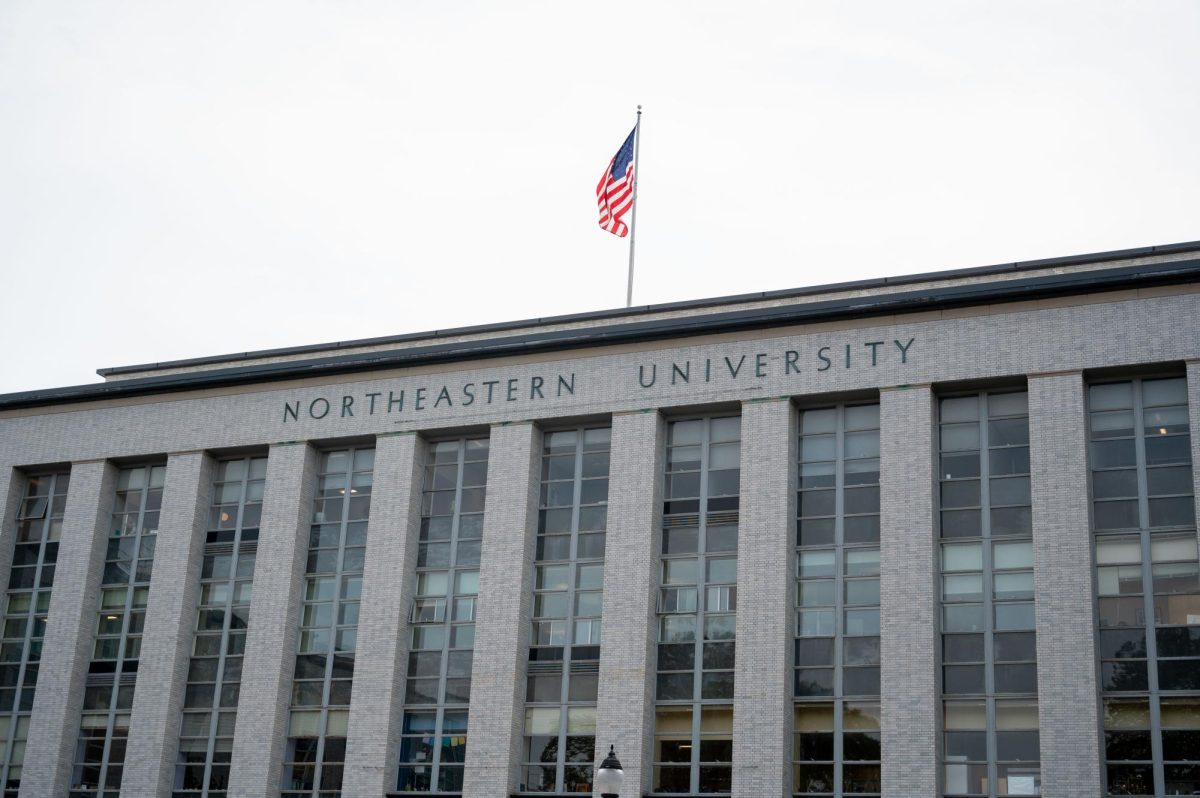By Steve Babcock
Vice President for Admin-istration and Finance Larry Mucciolo is set to announce next year’s university budget today which, if approved by the Board of Trustees, would include a 4.5 percent tuition increase that amounts to $576 per semester, according to a senior administration official.
The pending tuition increase will include an initiative known as the Academic Investment Plan that will go after “star faculty hires,” seeking to add 100 tenure-track professors over the next five years, according to sources.
“This is the lowest tuition increase in a decade,” the administrator said. “[The Academic Investment portion] represents an effort to bolster undergraduate education in the classroom.”
The tuition increase is well below the national average, which, according to the College Board, is currently 6 percent.
Over the past 10 years, Northeastern’s tuition increases have been as low as 4.6 and 4.7 percent, but this is the first year it has dipped to 4.5.
Student Government Association President Michael Romano, who sits on the Committee on Funding Priorities that draws up the main points of the budget, said the Academic Investment Plan was imminent in discussion among upper administration over the past few months.
“Anyone in tune to the campus climate can feel and hear the talk about major academic change,” Romano said. “A change, if it happens, could send a long shockwave through the campus community, and improve the quality of education.”
The proposed budget also includes new funding that provides for the operation of the new West Campus buildings F, G and H, which are set to house the Honors Program, College of Computer Science and new upperclass dorms, respectively.
On the other side of Huntington Avenue, the proposal looks to provide funding for an expansion of the Stetson West dining hall.
Speare Hall will also see renovations which include a “one-stop,” coffeeshop-like setting and a new space for Residential Life in its basement. Renovations to the Curry Student Center Ballroom are also slated for next year.
In terms of providing resources to students, the proposal includes $15.2 million for financial aid, which amounts to 39 percent of the total increase from last year’s budget. Tuition dollars pay for a large portion of that increase.
Sources also confirmed there would be a substantial increase in what is known as Institutional Advancement, which is another long-discussed program to take the university’s dependence off of tuition dollars by providing resources for alumni outreach.
Presently, Northeastern’s revenues are almost entirely dependent on tuition money because, as The News reported on Nov. 6, 2002, the money Northeastern gains from donations and other outreach programs, commonly known as the endowment, is severely depleted.
Romano and other SGA members have argued bolstering the endowment would create a decrease in tuition, as the endowment would become a larger source than it currently is for operational tasks such as building maintenance and renovations. The section of the endowment used for such tasks has not received a deposit since the 1990s, The News reported last year.
Former University Treasurer Joseph Murphy told The News, in the same article, other universities often use such money that is not required for the operating budget to go after “top faculty.”
The Committee on Funding Priorities, which is comprised of faculty, administrators and student leaders, has access to the confidential numbers regarding university revenue. The committee, which included students for the first time this year, approved recommendations to the budget committee early this year by suggesting a number of initiatives, such as the proposed academic investment plan, that warranted funding.
While the budget committee has final say about the exact numbers of the proposal, the Committee on Funding Priorities, with its access to numbers, is the first body to identify necessary expenditures.
For instance, a faculty member close to the budget process said this year, the committee is said to have approved the tuition increase ranging between 4 and 5 percent, but it was the budget committee, which is chaired by Mucciolo and Provost Ahmed Abdelal, that made the final determination on the 4.5 percent increase, as they weighed the university’s specific funding needs, sources said.
Romano, who was one of the first students to sit on the CFP, along with SGA Vice President for Financial Affairs Michael Benson, said although he and Benson voted down the list of priorities the committee agreed on, he thought the process was a huge improvement on past years due to student involvement in the deliberations.
“The budget process this year was the most transparent it has ever been and we are still one of the only institutions where students have an equal vote in the Committee on Funding Priorities to debate and argue for student needs,” he said.
When asked about why he voted down the proposal, Romano said it was a question of “allegiance” to his own constituents, since 4.5 percent is a higher increase than the 2 percent increase that was previously proposed by SGA.
“I could not vote for a tuition rate that was higher than what the Student Senate proposed,” Romano said. “But we are in full support of major academic investments. I think students got some major victories this year. To what extent, we’ll have to see.”
The extent to which Romano referred will get its first test in open forums today before President Richard Freeland’s cabinet, the Faculty Senate and later, the Student Government Association.
The proposal requires official approval from the university’s Board of Trustees, which votes on the proposal in March.
Until then, Provost Abdelal said he, Freeland and Mucciolo would be presenting the budget to different groups of faculty and students.
“In order to be mindful of the process, we need to be mindful of what the faculty [and students] have to say,” he said. “We do change some things as we go along.”









